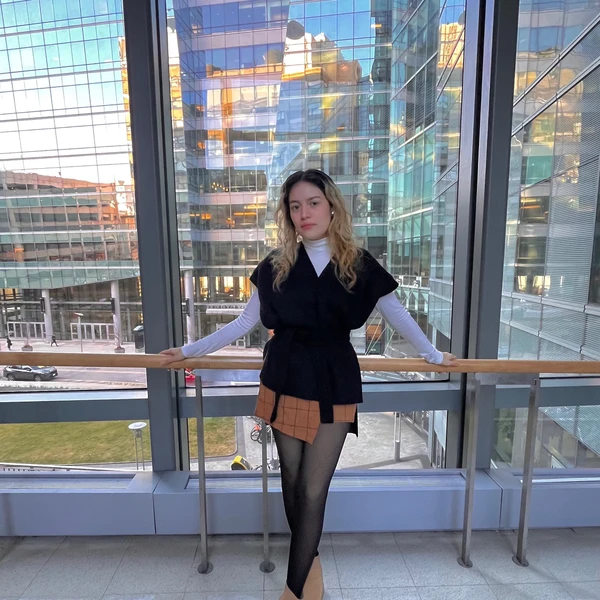
Hobbies and interests
Hiking And Backpacking
Photography and Photo Editing
Weightlifting
Baking
Exploring Nature And Being Outside
Animals
Social Justice
Advocacy And Activism
Art
Reading
Academic
Novels
Young Adult
Self-Help
Psychology
Classics
History
Romance
Social Issues
I read books multiple times per week
Claudia Campos
2,215
Bold Points
Claudia Campos
2,215
Bold PointsBio
I am a passionate first generation aspiring physician scientist who is interested in advancing the field of medicine and achieving health equity to eliminate disparities plaguing minorities nationally and globally.
Currently, I am a second year medical student focused on passing my pre-clinical years, volunteering in multiple organizations, and performing research to advance health for all.
Before medical school, I spent two years as a research technician in a pancreatic cancer research laboratory at Dana-Farber Cancer Institute and Harvard with one publication currently in press. I also have a previous publication from my research experience at Oak Ridge National Laboratory.
Outside of my love for science and medicine, I am very passionate about social justice, art, music, photography, wellness, animals, and nature.
Education
University of Illinois at Chicago
Doctoral degree program (PhD, MD, JD, etc.)Majors:
- Medicine
Tennessee Wesleyan University
Bachelor's degree programMajors:
- Biology, General
Minors:
- Chemistry
Miscellaneous
Desired degree level:
Doctoral degree program (PhD, MD, JD, etc.)
Graduate schools of interest:
Transfer schools of interest:
Majors of interest:
- Medicine
Career
Dream career field:
Medicine
Dream career goals:
Child/adolescent Psychiatrist
Server/cashier
Monterrey Mexican Restaurant2019 – 20223 yearsResearch Technician
Dana-Farber Cancer Institute2022 – 20242 years
Research
Biological and Biomedical Sciences, Other
Dana-Farber Cancer Institute — Research Technician2022 – 2024Biological and Biomedical Sciences, Other
Oak Ridge National Laboratory — Research Assistant2021 – 2021
Public services
Volunteering
CommunityHealth — Resource Officer2025 – PresentVolunteering
Helping Hands Chicago — Sorter/Packer2025 – PresentAdvocacy
Tennessee Wesleyan University - The Community and the TWU Feminist Association — club member/student volunteer2020 – 2022Volunteering
Tennessee Wesleyan University — Student volunteer2018 – 2022Volunteering
E.G. Fisher Public Library — Assistant Teacher2017 – 2020
Future Interests
Advocacy
Politics
Volunteering
Philanthropy
Entrepreneurship
TRAM Panacea Scholarship
Health disparities in the US are a persistent issue that disproportionately affect minority and low-income communities, resulting in worse health outcomes and greater suffering compared to their wealthier counterparts. These disparities do not only harm individuals – they strain entire systems and communities, and they reflect the deep-rooted societal injustices shaped by prejudice, bias, and systemic neglect.
I first became aware of these inequities as I applied to medical school and realized how different my background was from most other applicants. As a member of multiple minority groups in the rural south, I have experienced firsthand the barriers that marginalized communities face within healthcare. At 10 just years old, I served as a child interpreter at my family’s doctor’s appointments because official interpreters were unavailable. Because of this barrier, most of our concerns were left unanswered and medical conditions weren’t ever fully explained. Specialty care was also over an hour away, requiring a full day off work, and placing a burden on our single-parent household. Over time, we began avoiding healthcare, not because we wanted to, but because care was inaccessible, inconvenient, and financially overwhelming.
Sadly, our experience was not unique. Many of the people I grew up with faced similar challenges: unaffordable care, lack of insurance, cultural and language barriers, and limited access to quality care. These are not just individual hardships. These issues are the result of a system that has historically excluded and underserved vulnerable populations. These targeted insults contribute further to the generational trauma and financial burden that is passed down through generations, making it harder for individuals and families to thrive. It is unacceptable to live complacently within a system that benefits some at the expense of others. I refuse to live and work passively within this system – I am here to change it.
I care deeply about this issue because I have lived it, and I want to be a part of the solution. I am committed to building a career focused on dismantling these barriers to increase healthcare access and equity for marginalized communities, improving their health outcomes and quality of life. This scholarship would not only support my academic journey, but it would also allow me to advocate for those often overlooked in our healthcare system. It would help me achieve the goal of becoming a culturally competent, community-driven healthcare professional who advances health care and health outcomes for everyone, not just the privileged few.